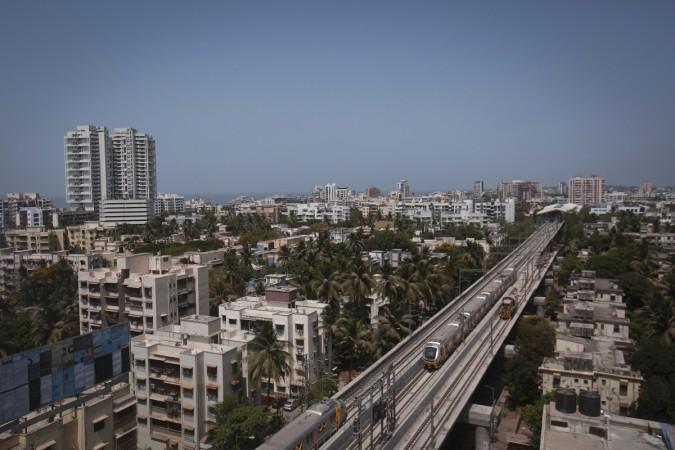
In a move that could revolutionise transportation in India's business capital, the Mumbai Metropolitan Region Development Authority has planned a 450-km-long network of metro rail corridors for the city and surroundings - the third largest in the world, a top official said on Thursday.
The Mumbai Metropolitan Region (MMR), which comprises Mumbai and parts of adjacent Thane, Palghar and Raigad districts, will get metro rail connectivity which will be next only to Shanghai and Beijing.
"The MMRDA has proposed to build 450 kms of metro rail and another network of monorail corridors which would offer efficient, convenient and environment friendly transportation system over the next 8-10 years," said MMRDA Metropolitan Commissioner UPS Madan at the Third Regional Dialogue, Mumbai, leading to the upcoming 15th Delhi Sustainable Development Summit scheduled in February.
Madan said that the government is working towards designing a transportation system that would ensure sustainable and smart mobility in the MMR.
He pointed out that given the changing income levels of the citizens, nearly 75% of the MMR population relies on public transportation against 80% population which was dependent on it earlier.
"Trains are cheap, eco-friendly and fast mode of transport - the people of Mumbai must be encouraged to use this mode by enabling better quality of services," Madan said.
Mumabai Rail Vikas Corporation Ltd chairman Rakesh Saksena said that Mumbai and surroundings with a population of 22 million pose a major mobility challenge.
"Over 53 percent of the population relies on the railways for modal transporation. It is densely occupied with nearly 7.6 million commuters commuting daily. The city has to focus on continuous capacity creation to met the demand-supply gap," he said.
For achieving this, a comprehensive rollout of metro rail, monorail and suburban trains is required, for which political and bureaucratic ownership of the projects and sustained government funding is the need of the hour, he said.
Mumbai Metro One Pvt Ltd CEO Abhay Mishra said that an efficient public transit system should save time, be financially viable and environment-friendly.
The much awaited metro rail project intends to positively impact lives of Mumbaikars by meeting these criteria, but the government must adopt a transit-oriented planning by redesigning roads, consider pedestrian walking aspects, stricter parking norms, eliminating roadside hawkers and illegal wayside constructions, Mishra urged.
The Regional Dialogues, organised by think tank TERI, came in the wake of the government's recent announcements on Swachh Bharat Abhiyan and 100 Smart Cities in India.

















